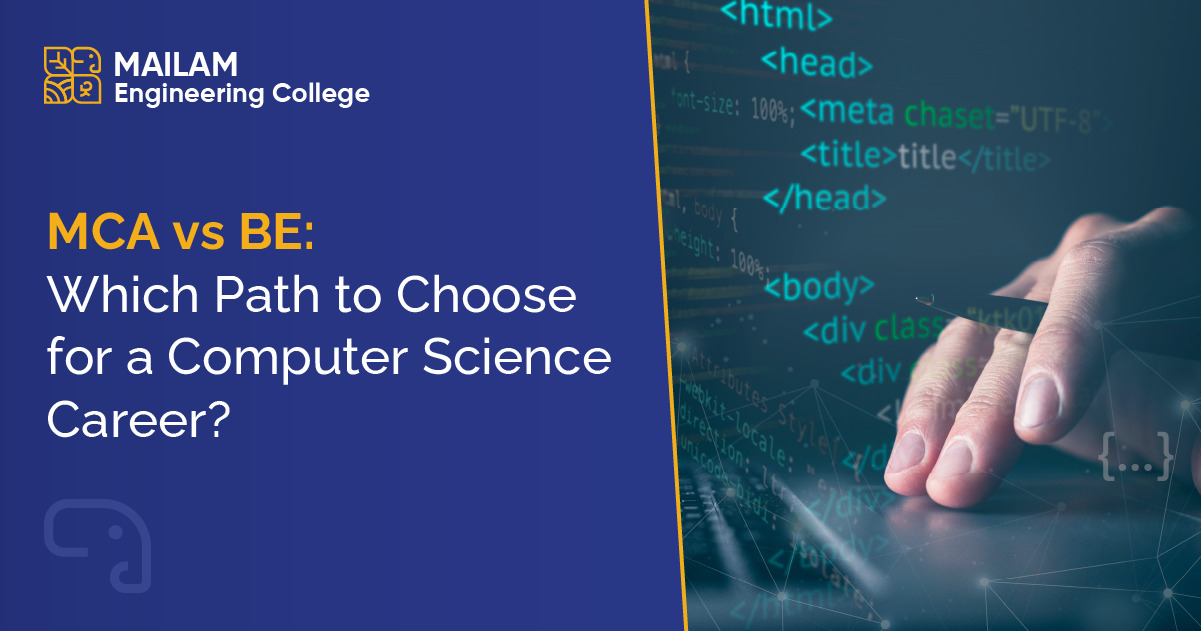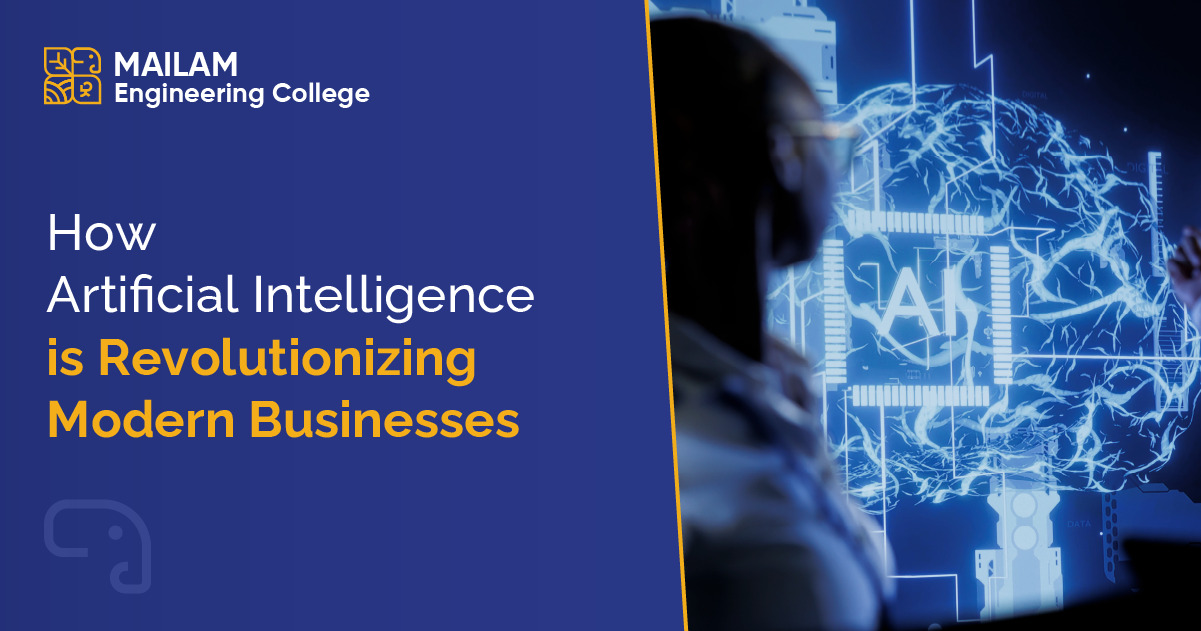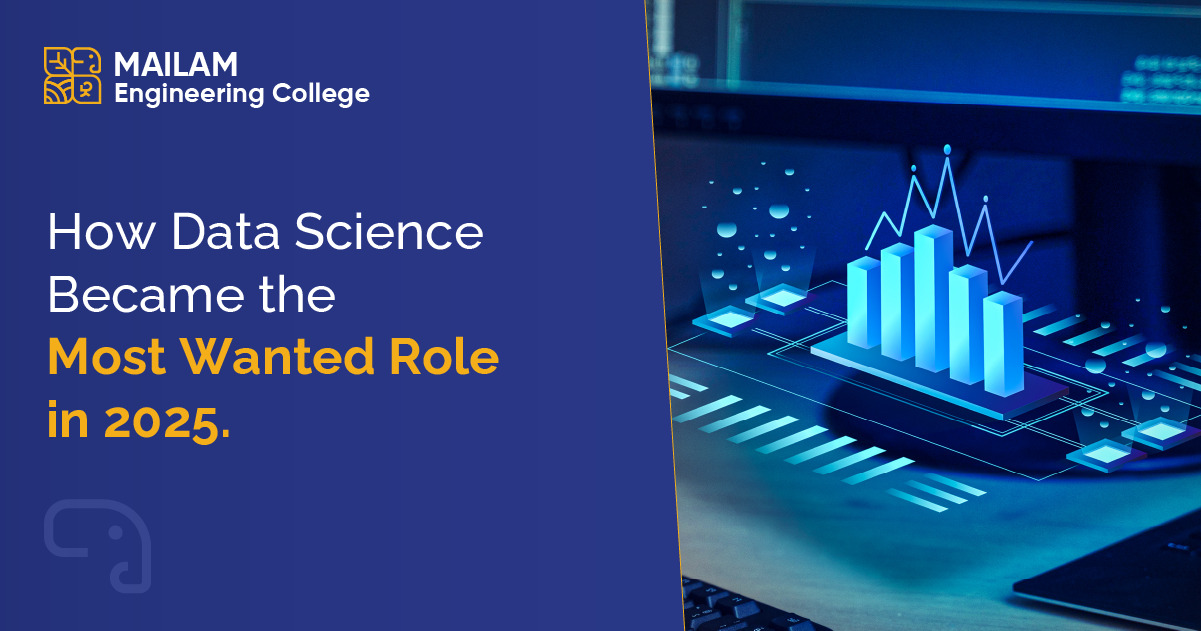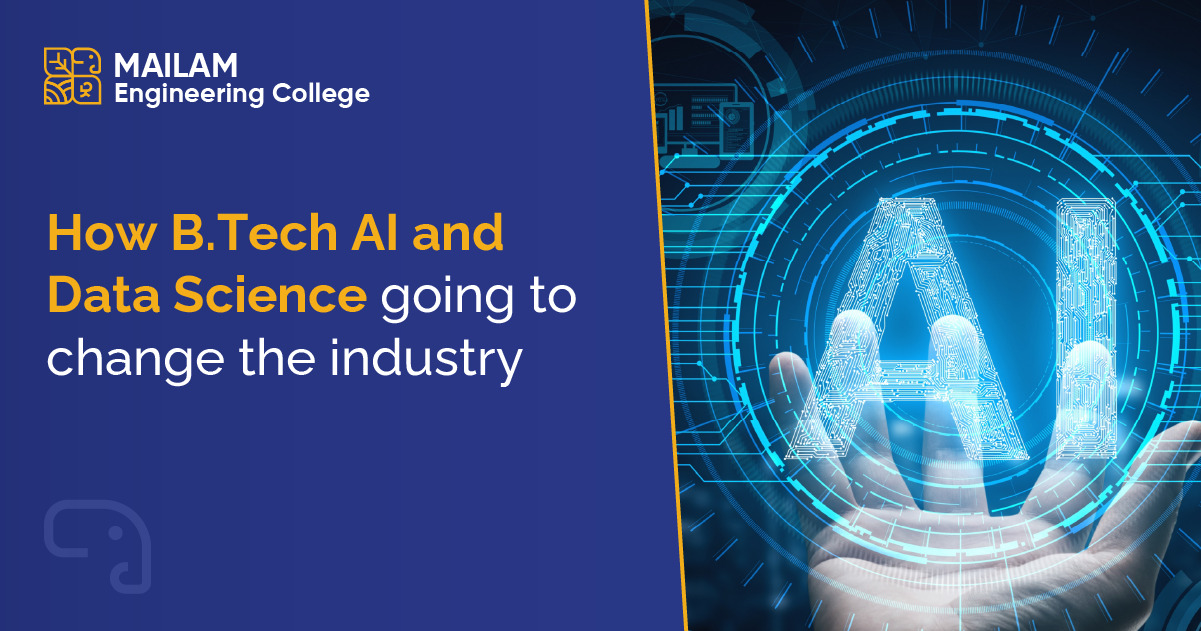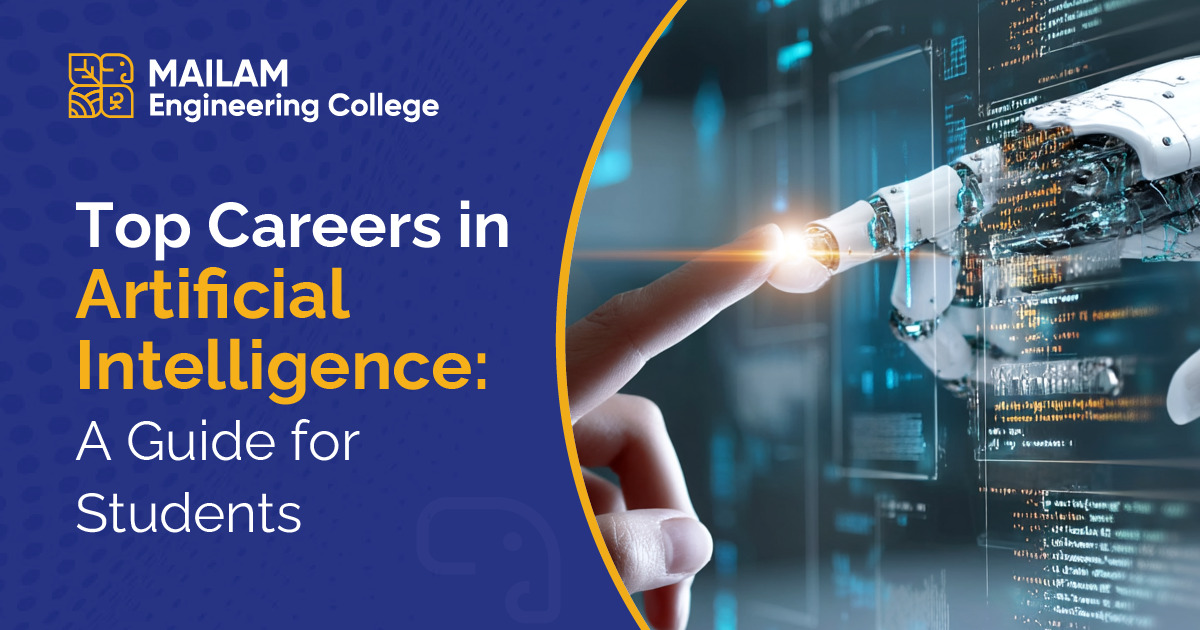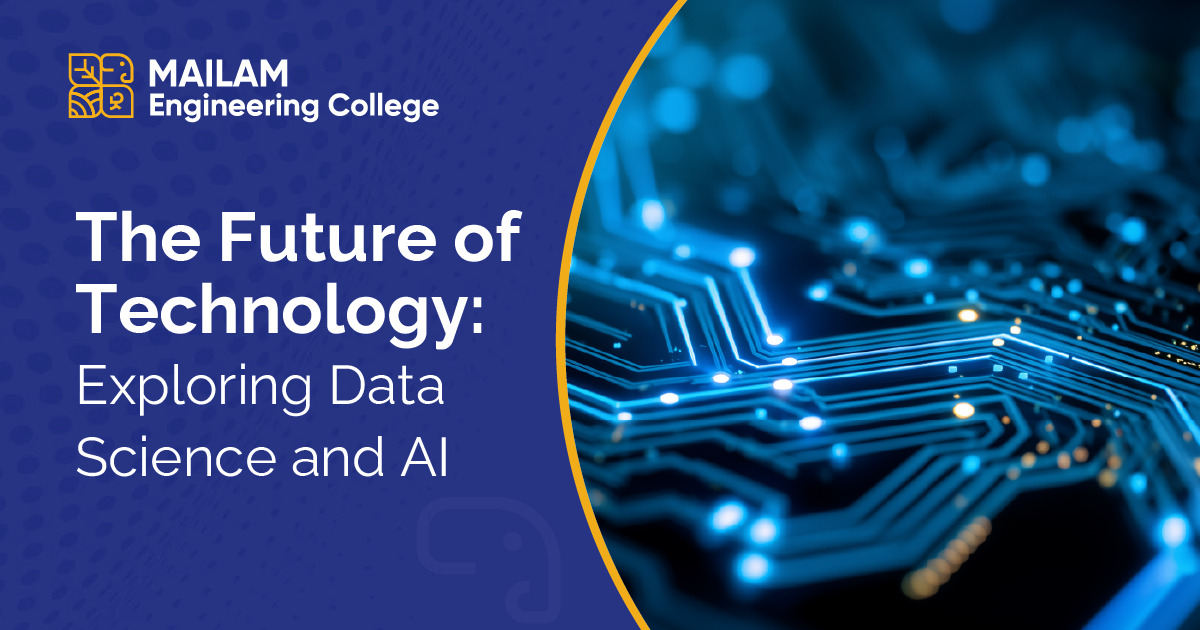Introduction
A computer science career demands an effective course choice as your initial critical decision. The two most popular educational pathways for software and technology students include Bachelor of Engineering (BE) in Computer Science along with Master of Computer Applications (MCA). Both qualification routes can result in rewarding IT careers yet possess dissimilar frameworks as well as admission criteria and future career options. We will thoroughly analyze both educational pathways in this article to assist your decision between BE in Computer Science and MCA programs.
Comparison Between MCA And BE For Computer Science Career
Course Duration And Structure
- The 4-year undergraduate BE (Bachelor of Engineering) in Computer Science delivers equal theoretical and practical engineering instruction to students. The educational plan starts with a wide range of mathematics and physics material alongside fundamental computing topics to carry students into advanced subjects.
- The Master of Computer Applications program established by UGC now runs for two years after it eliminated its previous 3-year duration as a postgraduate program for computer science graduates.
Eligibility Criteria
- The BE in Computer Science program accepts students who finished 10+2 with PCM (Physics, Chemistry, Mathematics) as their subjects. Future students must pass demanding entrance examinations consisting of JEE Main/Advanced tests or tests organized by individual states for entry.
- MCA accepts candidates with either a BCA degree or B.Sc. Computer Science qualification or B.Com/B.Sc. degree which includes Mathematics as their major. University-specific entrance examinations as well as national-level NIMCET represent the two entry points for candidates into tertiary education.
Focus and Curriculum
- Students who study BE must learn various subjects including data structures and algorithms alongside networks and software engineering in addition to electronic communication content.
- The MCA academic program focuses its educational material on creating software along with coding capacities and developing applications. The primary subjects of study consist of database management alongside Java and Python programming languages and web development training and database management and computer science electives.
Career Opportunities
- The BE degree qualification opens multiple entry-level job positions including Software Engineer and Front-End/Back-End Developer and DevOps Engineer and Network Administrator positions. The professional accreditation of BE enables its holders to take part in public service examinations while pursuing research and development opportunities in the field.
- The specialized software industry strongly seeks MCA graduates to fulfill positions such as Full Stack Developer and App Developer and IT Consultant and Business Analyst along with other roles.
Focus And Curriculum
- The curriculum for BE comprises diverse teaching subjects that include data structures together with algorithms and networks while also offering software engineering explanations and sometimes extends into electronic communication principles.
- The MCA education format specializes in teaching students software development and programming techniques and application programming. Database management systems together with Java and Python form the basis of core subjects while the program teaches web development as well as cloud computing technology and optional cybersecurity or mobile application development.
Industry Demand And Salary Scope
- The job market primarily selects BE graduates for employment positions in IT service provider companies and engineering companies. The starting salary for freshers ranges from ₹3 to ₹6 LPA but professional growth becomes significant through experience accumulation and M.Tech or MS qualification.
- MCA professionals who maintain certification in crucial skills receive compensation between ₹4 and ₹8 LPA but their specialized knowledge gives them advantage in employment opportunities.
| Did You Know? The 2023 study from Naukri.com shows MCA graduates who specialize in AI or Data Science receive compensation between ₹12–18 LPA from companies at the top level such as Google, IBM and Accenture. |
Further Education And Opportunities Abroad
- The educational path after BE allows students to follow M.Tech or MS (USA, UK, Germany) programs as well as MBA according to their professional aspirations. BE graduates are chosen by research positions in foreign universities because of their technical expertise foundation.
- Students holding MCA degrees have further study opportunities which include Ph.D. in Computer Applications and advanced courses in Artificial Intelligence and Machine Learning as well as other fields and gain improved opportunities to work abroad.
| Did You Know? The University Grants Commission (UGC) made an official decision to shorten the MCA program from 3 years to 2 years while trying to improve graduate education and boost IT student enrollment. |
Which Is Right For You?
- The BE program suits candidates who finish their 12th grade studies to acquire a long-lasting foundation in both engineering principles and computer science careers.
- The MCA program serves as an efficient path to landing senior-level technical positions and allows learners to specialize in AI development and app development and cloud computing domains.
Mailam Engineering College– Your Partner In Progress
The Mailam organization works to provide educational development and insightful knowledge that supports the next generation to build better choices. Our dedication involves delivering first-rate services and advanced digital solutions which match contemporary market requirements. Mailam stands by a customer-first mindset and utilizes its group of expert professionals to maintain excellence throughout all operations. Turn to us for partnership in your growth while we improve your concepts through practical deployment.
Conclusion
The selection between MCA and BE depends solely on the level of your education combined with your vocational aspirations. The foundation of a computer science career through the BE technical program suits new graduates from 12th grade because it teaches complete computer fundamentals from software to hardware principles. Those who are graduates will find MCA provides direct access to specialized expertise that leads to highly rewarding software development or IT consulting careers.
FAQs On Computer Science Career
1. Is it possible to study MCA following the completion of BE in Computer Science?
Some BE graduates choose MCA as an extra step to enhance their software application expertise even though this path is seldom followed. The M.Tech and MS programs better support the engineering branch of studies.
2. MCA or BE differ in their international employment opportunities, which one has better prospective?
The BE degree receives better worldwide recognition as it enhances applications for research and MS programs. Extracts from MCA graduates with both certification experience can enter global IT companies and succeed.
3. Do the job roles available to MCA graduates match the roles accessible to ME/M.Tech professionals?
Not exactly. M.Tech positions itself toward technical and research-focused work after the completion of MCA when students prioritize software application development. Industry-level jobs evaluate both MCA and BE candidates equally when their skill levels match.
4. Which is tougher—BE or MCA?
Both are academically demanding. The four-year BE curriculum covers various subjects yet MCA requires students to learn programming fluently by focusing intensely on application and coding skills.
5. Can MCA degree holders secure employment with companies developing and selling products?
MCA graduates can secure jobs at product-based companies when their programming abilities are strong and they possess project experience and achieve advanced certifications. The information technology companies make frequent MCA graduate hires.

